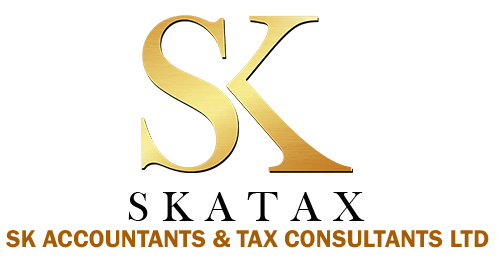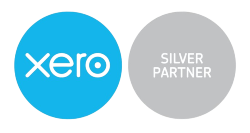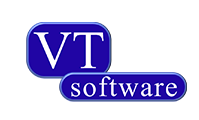A partnership, is similar to a sole trader but with 2 or more people. A written agreement and profits between the partners are usually shared between the partners according to the agreement. Though profits may be shared unequally, raised liabilities are shared jointly. This is an important note to be well aware in partnership including even if you own 1% of the business, you will still be responsible for 100% of the liability.
What to do when you are in a Partnership.
- Register as an independent with HMRC within 3 months of your setting up
- Pay Class 2 National Insurance contribution – HMRC will send you Class 2 National bills every quarter, unless exempted due to small gross.
- Set up a separate or a particular business account If possible – Ask us if you need to open an account
- Finish an individual Self-Assessment tax return. You’ll need to fill in the partnership supplementary pages – SA104.
- The nominated partner must also finish a Partnership Return – SA800 – showing each partner’s share of the profits or losses.
What is a Limited Liability Partnership?
LLP partners aren’t personally responsible for debts the business can’t pay – their responsibility is limited to the amount of money they invest in the business. Partners’ duties and share of the profits are set out in an LLP agreement. ‘Designated members’ have extra duties.
Tax for Limited liability partnerships.
Every year, the partnership has to compulsory send a partnership Self-Assessment tax return to HM Revenue and Customs (HMRC).
All the partners must:
- Send a personal Self-Assessment tax return every year without fail.
- Pay Income Tax on their share of the partnership’s behoof.
- Pay National Insurance
- Register your Business for VAT if income is above the VAT threshold.
- File VAT return normally quarterly – only if you are VAT registered.
- Set up a PAYE system to collect income tax and National Insurance contributions, if you have employees.
- File P35 (employer annual return) each year, along with P14, P11 etc. – solely if you register for PAYE.
Other needs, depends on individual circumstances such as filing P11D etc.
National Insurance (NI).
If you are independent or self-employed as a sole trader or a partner, you need to pay two types of National Insurance:
Class 2 National Insurance that is firmed at £2.85 per week Class 4 National Insurance on your taxable profits at:
9% on the profits betwixt £8,164 and £45,000 Plus, 2% of any profits over £45,000.
If you are an employee, or a Director of your own Limited Company, there are three types of National Insurance to worry you. The most usual rates, unless you are contracted out of the state pension scheme are:
Employees class 1 National Insurance (paid by you)– First £8,164 per year – nothing Next £36,868 – 12% all above 45,032 – 2%
Employer’s class 1 National Insurance (paid by your company)–
First £8,164 per year – nothing all above that – 13.8%
There are exemptions for startup businesses in some parts of the country for 12 months for up to 10 employees, capped at £5,000 per employee (for earnings paid up to 5 September 2013).
Class 1A National Insurance (paid by your company)– Paid on the advantage of benefits provided by your company – 13.8%
Tax is levied on the cash equivalent of the benefit of provision of free fuel for private motoring in a company car.
If the worker is required to make good to his employer the cost of all company fuel used for private purposes, and in fact does so, the charge will be nil. For 2017/18 onwards, private use payment must be made on or before 6 July following the tax year for which the charge arises. Previously it had to be made in the tax year in question or without uncooperative delay thereafter.
The employer can compensate business mileage at rates elevated than the advisory rates if they can demonstrate that the fuel cost per mile is higher. If the employer is unable to demonstrate that fact, there is no fuel benefit charge if the payments are solely for business mileage, but the excess will not be an allowable deduction in calculating the employer’s profits.
Q: We are trading as a partnership and overreach the VAT registration border in March 2018, requiring us to be VAT registered with effect from 1 May. However, we are contemplating assimilating from the beginning of the tax year (6 April 2018) and running the business from that date via the company. As there is no need to be VAT registered until 1 May 18, would this give us a new purity for calculating their turnover for registration purposes?
A. A change of trading entity is considered to be a transfer of a going concern and as such Section 49 VATA 1994 offers that the turnover of the transferor should be treated as that of the transferee in deciding whether the transferee is liable to be registered. But, this only goes to where the transferor is a taxable person.
A taxable person is someone who is either already VAT registered or responsible to be registered. So the question here is whether someone who has overreached the limit but is still in or within the 30-day notification period is a taxable person.
Q: When two of my clients retired from teaching, they set up a partnership to deliver tuition for GCSE Mathematics and English. Each tutor teaches their own individual students, as well as delivering tuition to a group, but sometimes they use third-party teachers to take the group sessions. Their turnover is £140,000 looking back over the last 12 months but they are not VAT registered as they assume their services are all exempt; is this correct?
A. Where a sole trader or a partner in a partnership teaches a subject usually taught in schools or universities, this is an exempt supply of private tuition. As your client is a partnership and the partners are teaching normal syllabus subjects then their tuition will be an exempt supply.
Testimonials
SK Accountants & Tax Consultants is one of the most professional and trusted Accounting Firms I ever dealt with in the UK. They are demonstrating a highly professional standards. Attending all inquiries on an immediate basis. Very Excellent customer service team and most importantly the unconditional care and support from the highly experienced accountants team. Thank you so much SK Accountants. I really recommend as the choice number one in United KingdomAbdul Rahman Abdul Majeed
It has been a very friendly, reliable and a swift experience for me with SKATAX. They have been very professional & efficient throughout the whole process. I would 100% recommend this firm to all businesses. Thank you KS, you and your team is great 🙂Azhar Khan
I have been with This company SK Accountant and Tax Consultant from last 5 years. They are very helpful in managing accounts and in consultancy. I definitely recommend everyone to use there services.Chaudhry Amir
I have used SK accountants and tax consultancy services to deal with one of my tax issues which was very intense and required lots of diligent planning. I was so pleased that the SK team was so proactive in dealing with my case, and their work was so detailed, which helped HMRC understand my tax situation. I would recommend SK to all those looking for proactive tax consultants.Danilov alexey
Positive: Professionalism, Quality, Responsiveness I have received consultancy advice from Mohsin Zafar, who has been very professional and helpful and answered many questions that I had. His responses were swift and concise. I recommend this company for consultancy services, they are very knowledgeableElena Zekonyte
We are Bronze Champion Partners with Xero Advisors
SK Accountants is the ‘one-stop-shop’ accountancy &
tax centre, servicing the needs of local SMEs and taxpayers






















